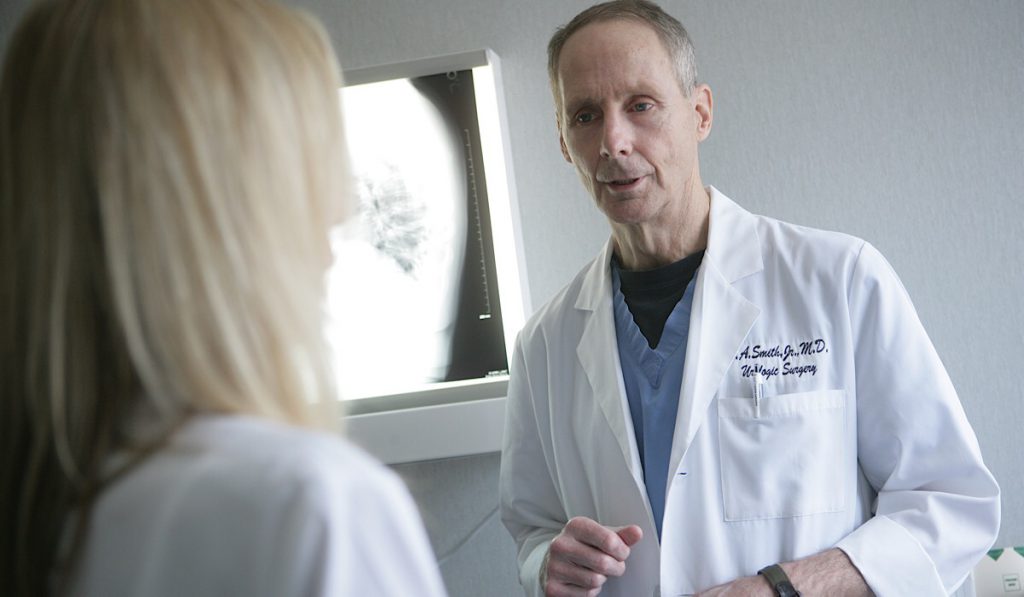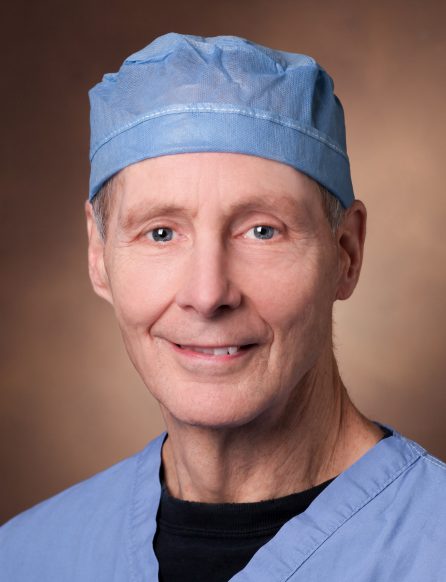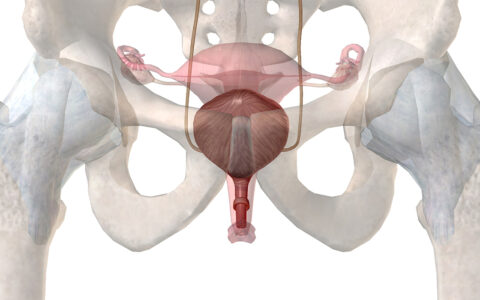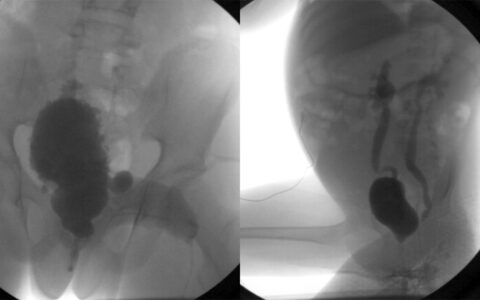The intersection of urology and oncology has “totally transformed” in recent years, says Joseph A. Smith Jr., M.D., urologic surgeon and professor of urologic oncology at Vanderbilt University Medical Center. Smith was awarded the 2019 Willet F. Whitmore Jr. Award and Lectureship from the Society of Urologic Oncology in recognition of his lifetime accomplishments. The award’s namesake—Smith’s mentor during training—was a pioneer and one of the first to define the field as a subspecialty.
“Since my training, treatment has evolved away from primarily open surgical operations,” Smith said. “Now almost all the surgery we perform—for kidney, bladder and prostate cancer—is minimally invasive, often robotic-assisted.”
“We have to incorporate other strategies as we move forward.”
And, surgery is no longer the only approach. “We’ve realized over time that our mindset is not simply set on doing surgery. There are other aspects to consider,” Smith said. “Surgery is limited in what it can do. We have to incorporate other strategies as we move forward.”
Incorporating Nutrition
Smith was recently a coinvestigator on a departmental study exploring an unconventional approach to radical cystectomy that incorporated a nutrition supplement into perioperative treatment.
Results from a prospective, randomized, controlled pilot trial (n=61) published in the Journal of Urology describe improvements in patient outcomes. Patients who took an oral nutrition supplement twice daily for eight weeks had lower complication rates and readmission rates than those who did not. The supplement reduced prevalence of sarcopenia following radical cystectomy.
Said Smith, “Sarcopenia is a significant marker of complications and readmissions following surgery. If adjuvant nutrition therapy can reduce it, that could improve patient outcomes across urologic surgery.”
Developing Team Expertise
Smith is also a past recipient of the Society of Urologic Oncology’s Huggins Medal—its highest honor—for his career contributions to progress in treatment for patients with genitourinary neoplasms. In his more than 40 years of experience, he has published over 300 peer-reviewed manuscripts, 100 book chapters and edited eight textbooks in the field.
To Smith, the awards are recognitions of all the work the Vanderbilt urologic oncology team has contributed to the field over the past three decades. “What I’ve done is one part. Together, we’ve built a comprehensive program.”
In addition to surgery, the team provides comprehensive radiation services—whether high-intensity focused ultrasound, biotherapy, focal therapy or active surveillance.
Leveraging High Volumes
Smith cites the high-profile CEASAR trial as a recent example. “We have the earliest and largest experiences in the world with robotic-assisted laproscopic prostatectomy. We’ve done over 10,000 of them now,” Smith said. High volumes provide statistical power to understand patient outcomes—even a decade post-surgery.
Vanderbilt has one of the busiest urologic oncology services in the country, Smith says, making it all the more important to connect patients to specific treatments. Said Smith, “There’s an increased emphasis on personalized care—attempting to identify which patients are appropriate for which treatments. Not only for selection of surgery, but other therapies.”
The urologic oncology team—which includes basic scientists, radiation oncologists, and medical oncologists—are currently developing a digital decision-making tool to guide patients and surgeons.
Said Smith, “These kinds of technologies totally change our operations and make recovery much easier on patients. That’s a trend that’s going to continue.”





